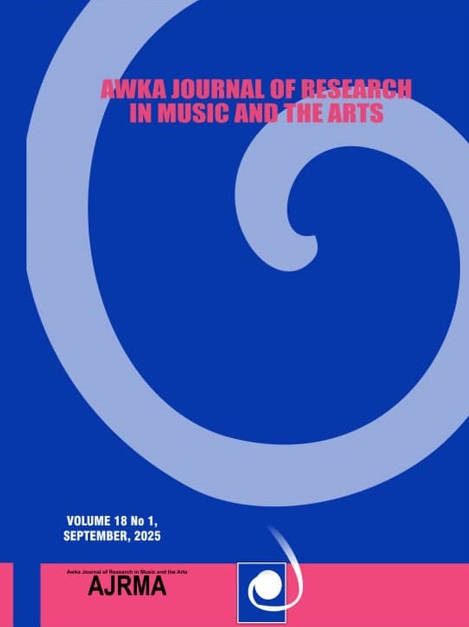EXPLORING AN INTERDISCIPLINARY FRAMEWORK FOR INTEGRATING INDIGENOUS MUSICAL TRADITIONS IN NIGERIAN SECONDARY SCHOOLS
Abstract
Nigeria’s musical heritage, spanning diverse ethnic, linguistic, and religious communities, holds immense cultural, aesthetic, and pedagogical value. Yet within the secondary school music curriculum, these indigenous and syncretic musical traditions remain marginalized in favour of Euro-Western theoretical and performance models. This paper investigates how these traditions can be meaningfully integrated into music education at the secondary school level through an interdisciplinary approach. Using a descriptive-analytical methodology grounded in secondary literature, the study examines core Nigerian music genres and their pedagogical relevance. The findings reveal key challenges including curricular marginalization, limited teacher preparation, resource scarcity, and prevailing biases that privilege Western musical forms over indigenous ones. Despite these constraints, Nigerian music traditions such as Afrobeat, Highlife, Juju, Apala, Fuji, and Gospel offer unique pedagogical strengths in fostering creativity, cultural identity, and community-based learning. The study concludes that an interdisciplinary framework—drawing on musicology, history, cultural studies, and education—provides a viable path for integrating these traditions into secondary school curricula. Strategic reforms in teacher training, curriculum design, and digital preservation are recommended to ensure both educational relevance and the long-term vitality of Nigeria’s musical heritage.

